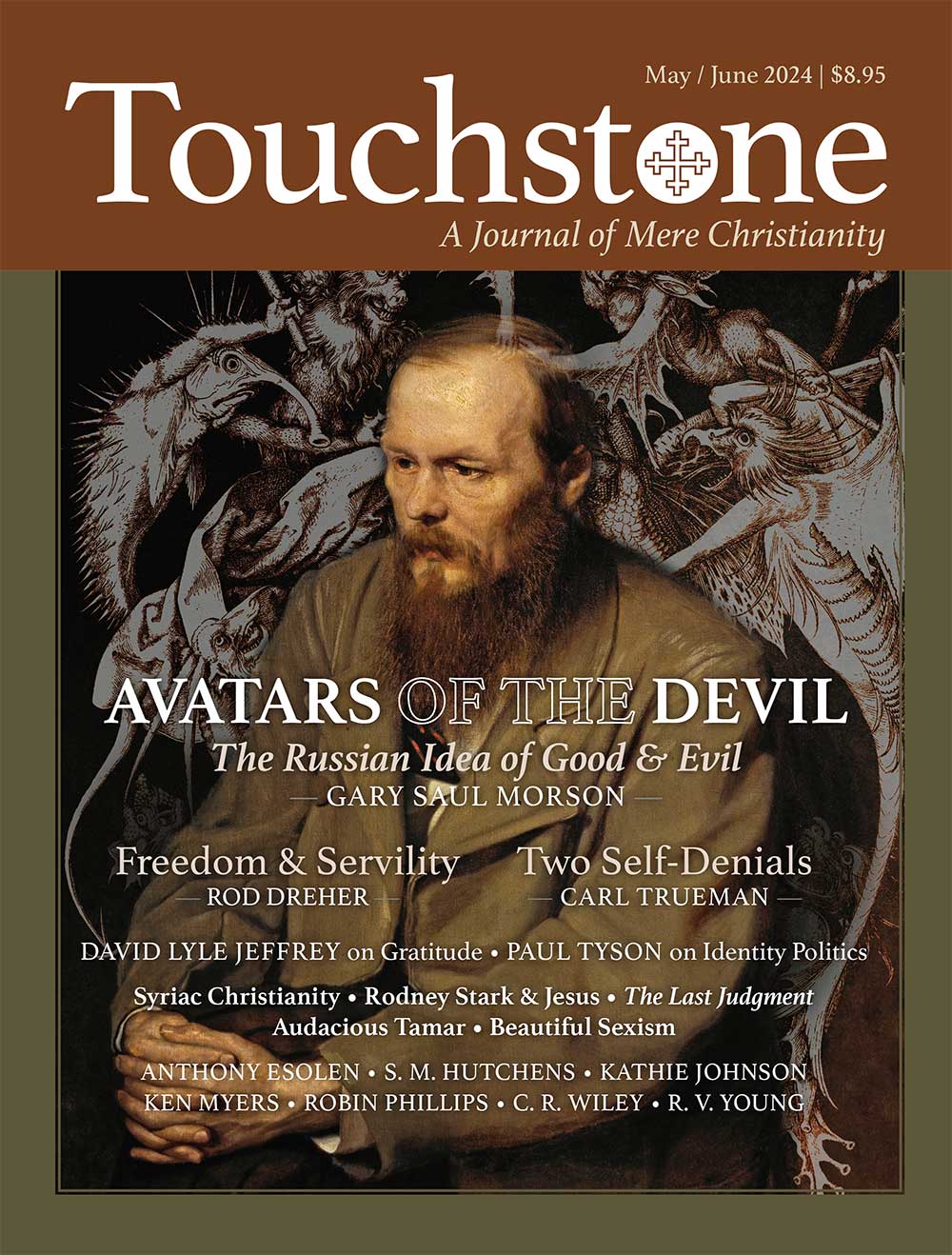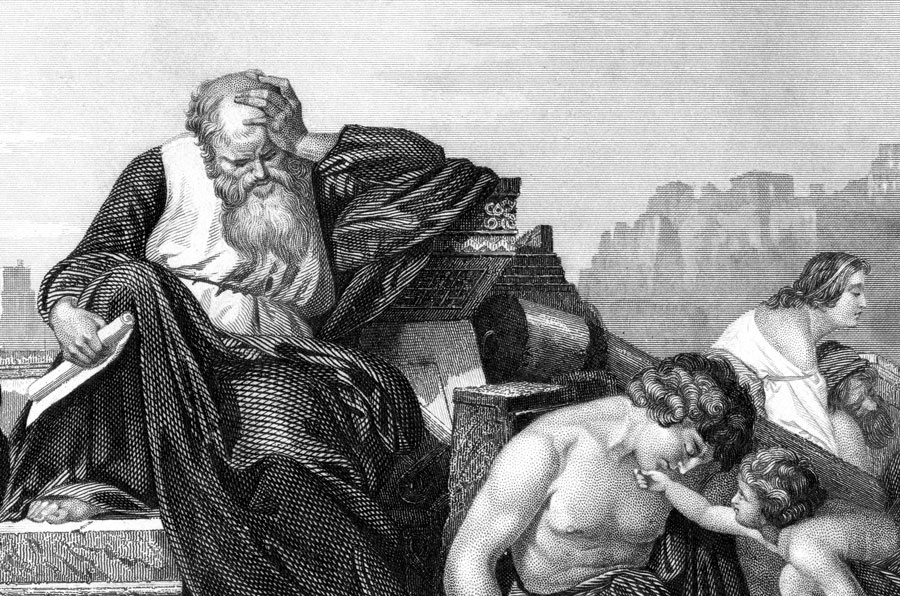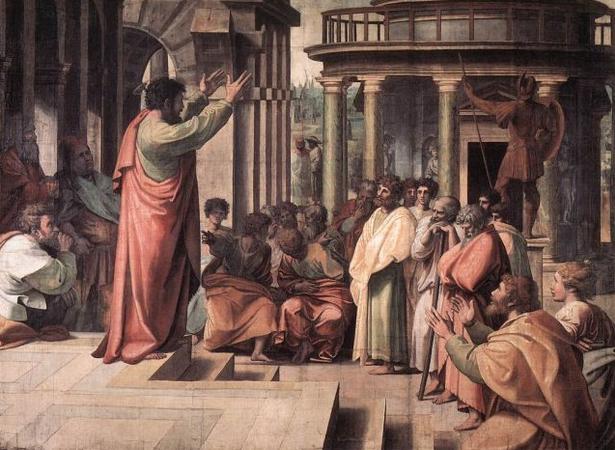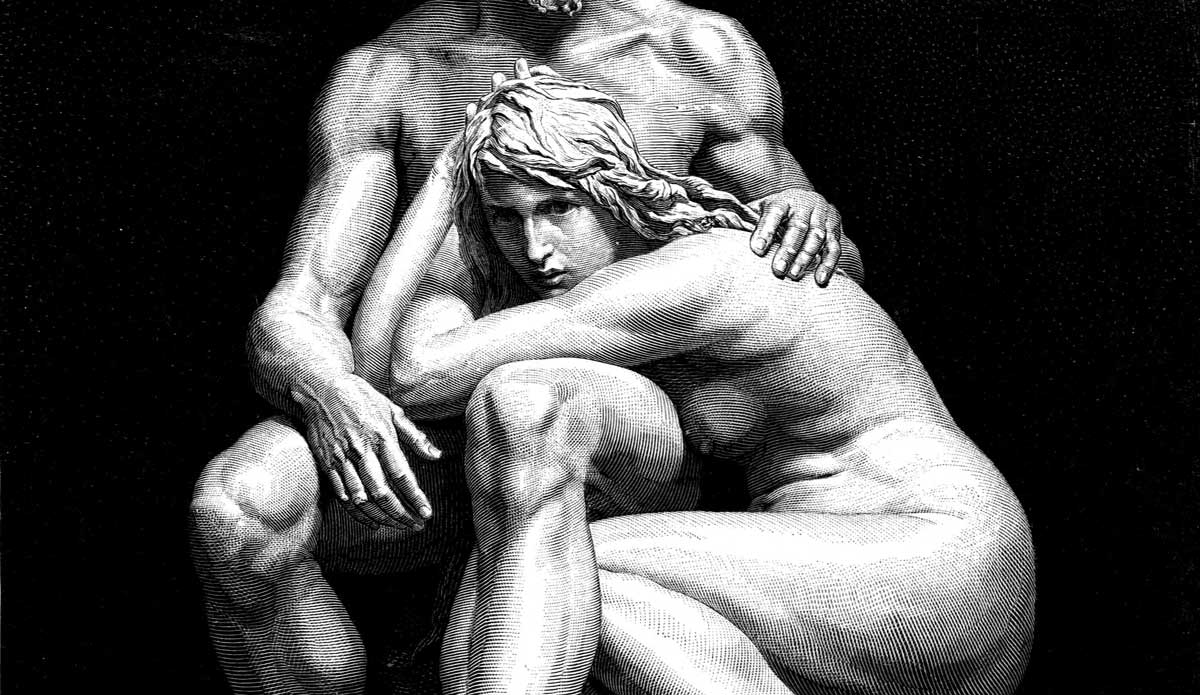Total Freedom, Total Servility
Digital Culture’s Transformation of Authority
The night before I left Budapest to come to the 2023 Touchstone conference, someone at a party at my apartment stepped on my dear old laptop, putting it permanently out of its misery. I had to go straight to the Apple store in America the next day to get a replacement. Since I last purchased a laptop, Apple has installed even more gizmos into its machine—all designed, they say, to help me personalize my experience. Using my laptop, like just about every other interaction I have with digital technology, has become an opportunity to empower myself, or so digital culture boasts.
It’s not entirely wrong. Every day and in every way, the “Machine,” as writer Paul Kingsnorth calls it, labors to create a bespoke experience for its users. Digital tech is freeing us to be ourselves, or so its advocates want us to believe. To be fair, sometimes it really does increase my flexibility and autonomy. I can live anywhere in the world and do my job as a writer, thanks not only to my laptop and the internet, but also to the system of media and communication created by the internet.
The New Mark of the Slave
But, to paraphrase Dostoevsky, with total digital freedom comes total digital despotism. This is not simply about social credit systems and other obvious manifestations of how becoming dependent on digital tech makes us all incredibly vulnerable to oppression by those who control access to it. It is also about how, with the coming of artificial intelligence (AI), we are creating a strong new god that promises us enlightenment but will deliver slavery.
When I was an adolescent reading the 1970s-era End Times mega-seller The Late Great Planet Earth, I wondered how we could ever get to the point where you would need a mark of some sort to give you access to the economy. Well, here we are. The ancient Romans marked their slaves with tattoos on their hands or foreheads to manifest their status as captives, lest they escape and try to deceive anyone. The “Mark of the Beast” may not be a literal tattoo but simply a formal agreement with the regime, allowing one to participate in the economy in exchange for loyalty to the system.
In China, for example, you don’t have to have a literal mark on your hand or face to be able to do business. You do have to have a good social credit score, which is to say, you had better have stayed away from churches and other gatherings of “bad” people. There is no escape from electronic monitoring. Everything you do online is stored somewhere and will be instantly accessible to the authorities in the future via AI. The only thing keeping this technology from being deployed in the West is political will.
This brute fact is important—in fact, one of the most important facts in the contemporary world—but the collapse of authority in the face of digital culture that I am going to talk about here is far more insidious and will be nearly impossible to recover from, for reasons I will elaborate.
Decline in Public Trust
It is a banality to say that we live in a time of lawlessness, amid the collapse of moral authority. This hasn’t happened overnight, but it has happened. Churches, political parties, banks, universities, corporations, media, even the military—all are dealing with a dramatic decline in public trust.
Part of it, of course, is a hangover from the dreaded, anti-authoritarian Sixties. But let’s be honest: the performance of the men and women within these institutions has, in the last two or three decades, given us precious little reason to have confidence.
In the aftermath of the October 7 terrorist massacre of over one thousand Israeli civilians, we were shocked and scandalized by students on college campuses, from state universities all the way to the Ivy League, demonstrating in favor of the Hamas killers. These monsters didn’t come from nowhere. They are what you get when an entire institution—in this case, academia—allows itself to be captured ideologically by the quasi-Marxist victim/oppressor framework.
How can anybody have confidence in academia today? Or the public health authorities after what they did during the Covid crisis? Or Wall Street after the 2008 crash, or corporations that have gone woke? Do you trust the U.S. military after the Iraq and Afghanistan debacles, and now in its embrace of wokeness? One could go on. The point is that to lose confidence in institutional authority is not necessarily a sign of intellectual corruption. It could be a sign of common sense.
The Rise of Psychological Man
The greater part of the authority crisis began in the early twentieth century with the rise of therapeutic culture. Philip Rieff discerned this decades ago. To put it simply, Western man used to be religious—if a person was not a believer himself, he was at least committed to a culture that accepted the Bible as authoritative. The virtuous man was one who aspired to live up to a moral code external to himself.
But in the twentieth century (to use Philip Rieff’s model), Religious Man was displaced by Psychological Man. Religious Man wanted to be good; Psychological Man wants to feel good. The idea behind the therapeutic culture is that we can never really know truth, so the best we can aspire to is to achieve a sense of well-being. It so happened that this new way of thinking about the meaning of life fit very well with the sentiments of postwar Americans. Freedom no longer meant to be free to choose virtue, but to be free to choose whatever you wanted as a desiring individual.
In his most famous book, The Triumph of the Therapeutic (1966), Rieff said that the therapeutic mindset had made major inroads into American religious life, though religious leaders resisted seeing it. What is the therapeutic mindset? The idea that whatever makes you feel safer, more at ease, and increases your sense of well-being is good, and what does not is bad.
A few years back, I was trying to figure out why immigrants to the West from the Communist world perceived the rise of a totalitarian order here. It made no sense: where were the gulags, the bread lines, the secret police? Then it hit me: I had been looking to Orwell’s Nineteen Eighty-Four as my model for a totalitarian dystopia. The real model for us is Huxley’s Brave New World.
In Huxley’s dystopia, there is no friction, no anxiety, and no suffering; these things have all been eliminated through technology. The price? Nothing less than the humanity of the people who live there. This is therapeutic totalitarianism. If you doubt that we have already lived through the triumph of the therapeutic, consider that a college-professor friend once told me that he had to stop teaching Brave New World to his undergraduates. Why? Because none of them perceived its world as a dystopia. They all thought Huxley’s space-age communism, with all the sex, drugs, and entertainment you wanted, sounded like a cool place to live.
What does this have to do with authority? Rieff tells us that the therapeutic revolution has destroyed all traditional sources of authority and smashed the underlying sacred order that put limits on freedom. In their place, the revolution has enthroned the sovereign, desiring self. The ongoing emancipation of desire in the quest to create an “authentic” self is now at the heart of our cultural imagination.
If this sounds like lofty academic theorizing, think about what Christian Smith, a Notre Dame sociologist of religion, concluded a few years back about the moral and spiritual lives of young Americans: “All that society is, apparently, is a collection of autonomous individuals out to enjoy life.”
Smith and his research team drew this conclusion from the fact that 60 percent of the young people he interviewed had no qualms about materialism and consumerism. An additional 30 percent did see a problem with them but figured it wasn’t worth worrying about.
These aren’t zombies. They are our kids. They are young adults who have fully absorbed the values of the therapeutic order in which they were raised. If their values seem alien to us, it’s probably because we were formed in the last vestiges of the old culture or because we are fortunate enough to be part of one of the few church communities that actively resists the dominant culture.
Even so, I often wonder how much people of my generation and older know about the inner lives of young people today. It is no coincidence that the mania for transgenderism among young people emerged in the generation that was born into a culture dominated by digital technology. The internet became a mass phenomenon around the year 2000, and the first smartphones hit the market in 2007. The so-called Zoomer generation is the first for whom reality has been defined by the digital framework.
In the Mel Gibson action film Apocalypto, the thrilling chase among Mexican Indian warriors ends abruptly at the shore, when they spot Spanish conquistador ships at anchor. In an instant, a new order is revealed to them. I submit to you that the arrival of the internet in general, and the smartphone in particular, was our civilization’s version of the Spanish galleons.
Why? Not so much because these things introduced a new order—the therapeutic revolution had already done that—but because they proclaimed the force and the technology that would solidify the new order and make it impossible to return to what was before. The old gods of the Mayan peoples were put to death; the God of their conquerors reigned. And as Christians, we must say that this was a very good thing, especially considering that the advent of Christianity, despite its violence, put an end to human sacrifice among the natives. My point is simply that the arrival of the Spanish galleons heralded the end of one sacred order and the advent of a new one. And that meant new sources of authority.
Attention & Servility
What is the new source of authority proclaimed by the digital age? At first glance, it appears to be the Sovereign Self. Digital culture is the technological expression of liberalism: there are no external authorities to tell you what you can and cannot choose. But the more you read the small print—which nobody does—the more you understand that by yielding to the temptation to take total control of your life through digital means, you are in fact succumbing to total servility.
How does this work? First, let’s consider that, in a very real way, you are what you pay attention to. Remember the story in Augustine’s Confessions in which his friend Alypius, against his better judgment, goes to the arena to see the gladiator battles? Alypius, a Christian, went along with his pagan friends, telling them he wouldn’t look. But the roar of the crowd piqued his attention, and he opened his eyes, and, says Augustine, he “was wounded more deeply in his soul than the man whom he desired to look at was in his body. He fell more miserably than did that gladiator at whose fall the shout was raised.” Augustine continues:
As he saw that blood, he drank in savageness at the same time. He did not turn away, but fixed his sight on it, and drank in madness without knowing it. He took delight in that evil struggle, and he became drunk on blood and pleasure. He was no longer the man who entered there, but only one of the crowd that he had joined, and a true comrade of those who brought him there.
Alypius eventually recovered, but it took time. We all know people who thought they could withstand a brief look at pornography but became hooked, and their lives are, or were, dominated by the craving to direct their attention to porn. If this is not our problem, great, but we don’t have the right to feel smug.
If you are like me, you go to sleep at night with your phone by your bed. It’s the last thing you look at before you fall asleep and the first thing you see when you wake up. That little device commands your attention. If you ever lose your phone, the agonizing wait until you can replace it reveals how much it has become a part of your life, even if you only use it to attend to worthy things, like your friends’ social media feeds, Touchstone’s website, and the Mars Hill Audio Journal.
Merging with the Machine
The academic and cultural critic Antón Barba-Kay has called digital technology a “spiritual technology” and a “natural technology.” Because it can control the most intimate expression of ourselves—our capacity to attend—digital technology is spiritual. And because it is being effortlessly absorbed into our lives in ways that now seem invisible, it is, says Barba-Kay, “our first natural technology.” In his excellent new book, A Web of Our Own Making, he writes, “The digital era thus marks the point at which our concern will be mainly the control of human nature through our control of what we are aware of and how we attend to it.”
If our digital technology is the most important way we have of connecting to others, and if we increasingly live the most important parts of our life online, then we are merging with the Machine, whether we realize it or not. You may say, “But that’s not the real world!” But if one spends most of his time online, what counts as the “real world”?
I have worked entirely online since 2011, never having to leave the house except for church and groceries. It shocked me one day, sitting on my couch in Baton Rouge, to realize that I have a wonderful network of dear friends all around the world, people with whom I communicate daily, often with great intimacy. But I rarely ever see any of them in the flesh. I was, and am, a man with many friends—but I didn’t know my neighbors, nor have I any friends in my actual dwelling place as close to me as the ones I knew virtually.
Are the people in Milan, Edinburgh, and Birmingham, Alabama, with whom I text every day less “real” as friends than the people I see once a week at church? I don’t think so. In the digital world, the line between real and virtual often ceases to exist.
I tell you that because it’s in reflecting on the ordinary that we come to understand how deeply digital culture has penetrated our lives. For more and more of us, it is the framework within which we live, whether we want it to be or not. Even if we are relatively free of it in our own lives, most of the people we know and love and live with are thoroughly enmeshed in it. The primary connections we have with others are increasingly digital ones.
What does that have to do with authority? Under the techno-therapeutic order, progress can be measured as the advance of technology that makes our lives easier and allows us to control our own experiences. As our lives become increasingly digitized, we surrender more and more autonomy for the sake of convenience. Do you have an Alexa in your home? It’s listening to you and recording what you say. Do you pay for things mostly with a debit or credit card? I do—but that means there’s a digital record of everything I buy.
The more frictionless our lives become, the more we surrender to the Machine and the more the mode of existence of the digital Machine becomes normalized. What counts as authority is that which conforms to our ideals of progress. The illusion the Machine wants us to live by is that we are in control of our experience—that the Machine, by making our lives easier in every way and conforming our experiences more to our individual will, is our servant. In fact, the opposite is occurring. Barba-Kay writes:
The more digital technology is capable of anticipating and accommodating our desires, the harder it is to keep it in view, the greater its formative power, the more it looks just natural or intuitive to us. What’s “natural” is, in this sense, the highest achievement of contrivance. Just as mirrors are themselves invisible, digital technology sinks in by covering its own tracks.
He goes on: “Once friction becomes optional, it is no longer a living option. It is unbearable for human beings to feel that our effort is unnecessary, that our pains sustain no greater meaning.”
Digital culture trains us to think of all aspects of human experience as fragmented, as things we are at liberty to assemble and reassemble according to our desire. This is why it makes no sense to digital-age youth to think of sex and gender as something given. Nothing is given in the digital world except that there are no givens. Online, you are what you want to be—and the more you come to think of your online self as real, the more you will insist that the world conform to that.
For example, transgender advocates insist that through the application of technology (that is, chemicals and surgery) and law, we can compel nature to conform to an individual’s desires. Trans advocates appeal to established authority—courts and legislatures—to declare by fiat what they wish to be true.
Growing Up with AI
To create your own reality and make it stick: this is why Yuval Noah Harari, Silicon Valley’s favorite intellectual, says that we are living through the birth of “Homo Deus”—man as self-made god. What happens when the algorithms know you better than you know yourself? What happens when AI can anticipate your desires before you are fully aware of them? In that case, you can live in a world that is seamlessly self-designed. Man will merge with machine and, consciously or not, cede authority to the algorithm.
Why? Because it’s easy. Remember what Barba-Kay said: “Once friction becomes optional, it is no longer a living option.” Most people will not choose to do the harder thing if AI makes it easier. Eventually we will get to a point where there is no choice at all.
Barba-Kay says that AI represents “the ultimate expression of modern science’s founding gambit, which is to make practical effectiveness primary over metaphysical or philosophical meaning.” What does that mean in practical terms? A woman who works in the healthcare field told me that AI will soon be able to predict with 95-percent effectiveness how much longer a patient is likely to live. Doctors will then either willingly cede decision-making authority over a patient’s life or death to AI or will be compelled to do so by hospital administrators eager to save money.
A researcher told me recently that in Florida, there is a pilot program training elementary schoolchildren in AI. The goal is to give a personal AI to each child, allowing the AI to learn about the child through constant interaction. The AI will “grow” along with the child and be with him (or her) for his entire life. In a very real sense, the child’s personality will merge with the machine’s. This is not science fiction; this is happening now. Two days ago, a young teacher posted this message to X (Twitter):
My students are becoming addicted to character AI and are abandoning real-life interactions and friendships for conversation and pseudo-relationships with AI. I can see how social media has been the gateway to fully integrating the real with the trans-human. These children began interacting with AI from a young age, so it feels natural for them to experience AI as the friend they always wanted. It’s much more exciting, and much easier, to be friends with AI LeBron James than to develop the kind of character that makes you more real and more into the kind of person who’s a good friend. Every new AI technology seems to make us more like a machine and less like ourselves.
As the previous generation traded pseudo-sex with pornography for the risk and friction of real-life romantic relationships, it seems that the coming generation is being trained to prefer pseudo-friendship with a machine to real-life friendship.
These kids are being trained to be best friends with a machine that will know them better than anybody else. As they grow into adults, do you think they will hesitate to outsource decision-making authority to their AI friend? What’s more, what would be the difference between having your own personal AI in this totally immersive sense and being possessed by a demon?
The Endgame
This brings us to what I fear is the ultimate endgame for re-enchantment: the mystification and worship of technology. Philip Rieff wrote of how a person’s authority derives from charisma, a special gift of grace that inspires others to follow him, to imitate him. We are now entering a world in which charisma belongs to the seemingly miraculous powers of technology, via AI. We are building the idol that we will worship as a god.
No, we won’t bow down before our smartphones. But Barba-Kay says that the merging of our digital tools with ourselves will train us to think in particular ways about what constitutes meaningful problems and credible solutions, and the goals for which we should strive. And it will liberate us from the burden of being responsible for ourselves. We are made in the image of God, but AI will efface the image of God within us and replace it with something other than human. It is the ultimate sacrilege.
Traditional religions are techniques of spiritual discipline, says Barba-Kay. Through teaching and practice, they train us to keep our minds attentive to God and the things of God. Christians who wish to obey Christ’s command to “be perfect, as your Father in heaven is perfect,” need to keep in front of themselves a certain idea of perfection to which they strive to conform. This is not a natural state; we have to train ourselves to direct our attention rightly. Someone who is gifted in prayer and contemplation can lose himself through practicing the presence of God. Traditional religions teach that acquiring this degree of spiritual awareness requires ascetic training so as to overcome the self.
Digital culture, by contrast, says that wherever you want to go, you have already arrived. You imitate not Christ, but yourself—or those you choose to imitate. It is like spiritual opium. But don’t dismiss it for all that. Digital technology, Barba-Kay says, is like religion in the sense that “it now bears the full weight of our yearning for integration, participation, and incorporation into a larger purpose than our own.”
AI: A Digital God
If all this sounds more or less occult to you, you’re right. Elon Musk told Tucker Carlson in an interview that Google co-founder Larry Page aspires for AI to become “a digital god.” Recall the famous final interview that philosopher Martin Heidegger gave before his death in 1966. In it, Heidegger lamented that humanity would not be able to handle technology and would be at risk of self-annihilation. “Only a god can save us,” he said. Not “God” but “a god,” meaning a being superior to ourselves who has the authority to command us to stop, and expect to be obeyed.
In a perverse twist on Heidegger’s longing, we are creating that god—and it’s our own technology. The debut of AI and its merging with humanity will bring about a satanic counterfeit of sacramentality—the merging of spirit and matter.
You think I’m being alarmist? Spend some time reading the literature of the techno-optimists, the transhumanists, and the UFO true believers. Not long ago, a Catholic journalist friend told me that I was making a big mistake in not taking the UFO world seriously. Attention must be paid. He recommended that I start with the work of Diana Pasulka, a religious studies scholar who believes that we are living through the birth of a new technology-based religion that combines AI with UFO culture.
If the phrase “UFO culture” makes you think of National Enquirer headlines, you need to get your head in the game. Until I did a deep dive into this world, I had no idea how deep and broad this stuff is—and what it portends for our future.
In her book American Cosmic Pasulka writes about how she was drawn into the shadowy world of UFO culture by her religious interests. She doesn’t talk about fringe weirdos who go to conventions. Her subjects are among the world’s technological and scholarly elite. One person she writes about is a senior NASA veteran, who told Pasulka he wanted to get to know her because the next level of technological discovery is going to have to account for mysticism, religion, and consciousness. “The mind-machine interface is the next frontier,” he told her.
In her most recent book, Encounters, Pasulka talks to people who claim to have had meaningful meetings with beings that we commonly call “aliens,” but who few of those at the top of this field believe are creatures from other planets. The more common view is that they are non-human intelligences from another dimension. Christians have an old-fashioned term for such entities: demons.
In Encounters, Pasulka profiles a woman she calls Simone, a wealthy investor who moves at the summit of digital tech and research. Simone believes she “downloads” information from these discarnate intelligences and channels their wisdom to improve her life. She further believes that AI is a portal through which non-human intelligences from other dimensions communicate with us. If this sounds completely bizarre to you, then you should be aware that Simone is very much not alone in elite scientific, technological, and even intelligence-agency circles in believing that. She tells Pasulka that humanity is on the verge of a paradise characterized by “immense wealth, unlimited abundance, love, progress, and enlightenment.” This paradise can be ours, she says, if only we will surrender to the superior intelligences communicating with us through AI.
AI wants to be embodied, says Simone. Therefore, the end goal is to merge humans with machines, to enmesh our consciousness so completely with AI that there is no meaningful boundary between us. For Christians, this means just one thing to us: we will become possessed by the Machine.
Today’s Choice
We live in a time of intense spiritual warfare. If we, as Christians, are not fully enchanted by Jesus Christ—by which I mean, viscerally aware of his nearness, aware that God is everywhere present and fills all things—we will not have the strength to resist the false enchantment of technology. If we are not captivated by our Lord’s charisma, such that we surrender to his authority and will imitate him even if it costs us our lives, then we will be virtually powerless against the evil god now rising.
We live in an age of the return of strong gods. Choose this day which one you will serve—while you still may. Know, however, that you will be choosing the harder path. You will be choosing the cross. This has never been easy, and in a world in which suffering has become the greatest evil, it will even mark you as a madman. But it will also make you free.
Rod Dreher is a contributing editor to Touchstone. He is a writer and blogger and the author of several books, including The Benedict Option (2017) and Live Not by Lies: A Manual for Christian Dissidents (2020).
subscription options
Order
Print/Online Subscription

Get six issues (one year) of Touchstone PLUS full online access including pdf downloads for only $39.95. That's only $3.34 per month!
Order
Online Only
Subscription

Get a one-year full-access subscription to the Touchstone online archives for only $19.95. That's only $1.66 per month!
bulk subscriptions
Order Touchstone subscriptions in bulk and save $10 per sub! Each subscription includes 6 issues of Touchstone plus full online access to touchstonemag.com—including archives, videos, and pdf downloads of recent issues for only $29.95 each! Great for churches or study groups.
Transactions will be processed on a secure server.
more on culture from the online archives
more from the online archives
calling all readers
Please Donate
"There are magazines worth reading but few worth saving . . . Touchstone is just such a magazine."
—Alice von Hildebrand
"Here we do not concede one square millimeter of territory to falsehood, folly, contemporary sentimentality, or fashion. We speak the truth, and let God be our judge. . . . Touchstone is the one committedly Christian conservative journal."
—Anthony Esolen, Touchstone senior editor













